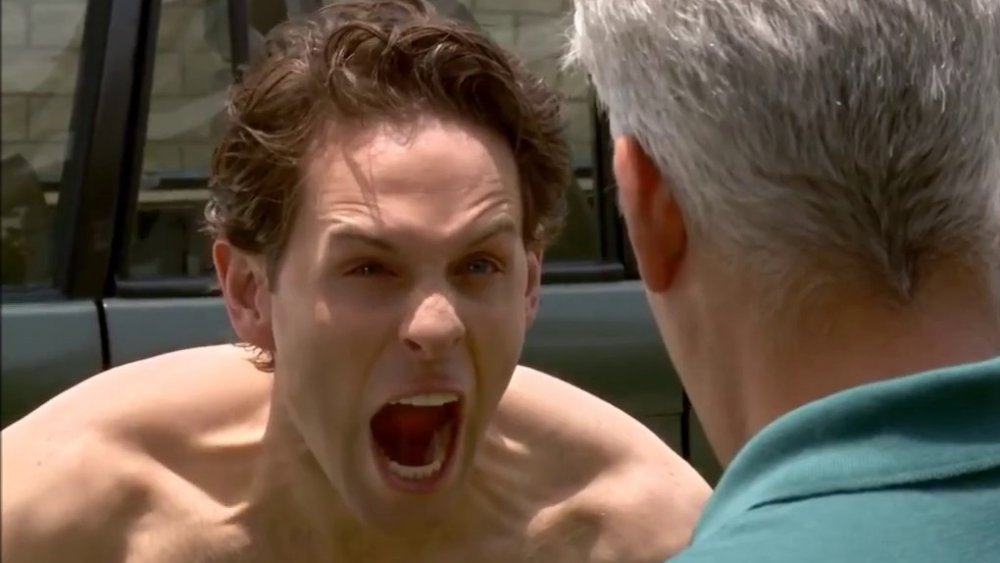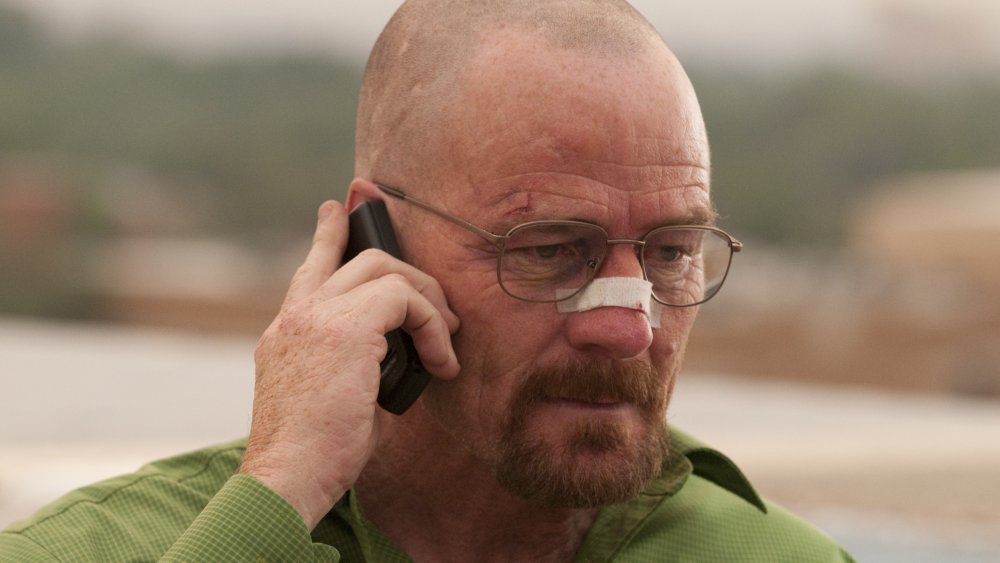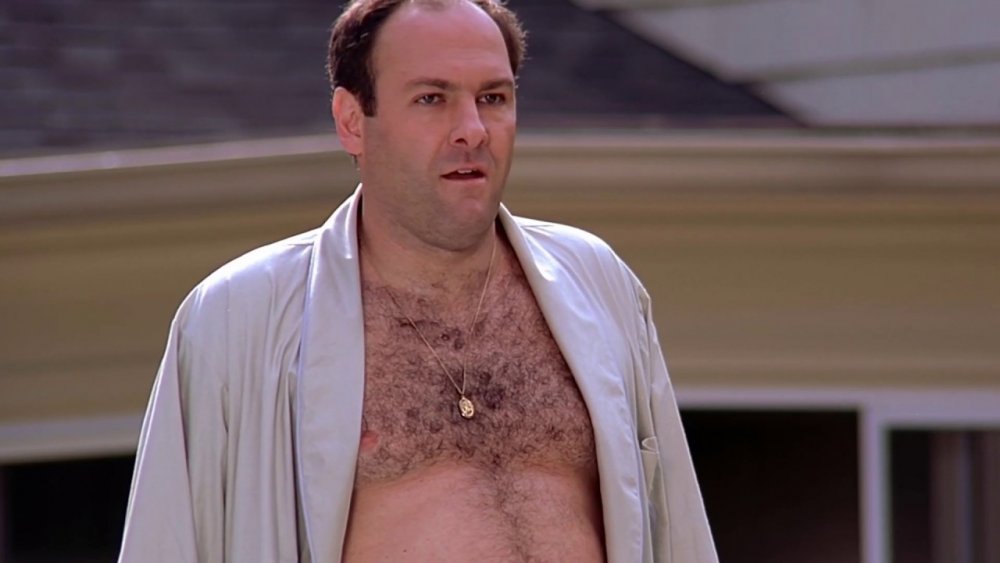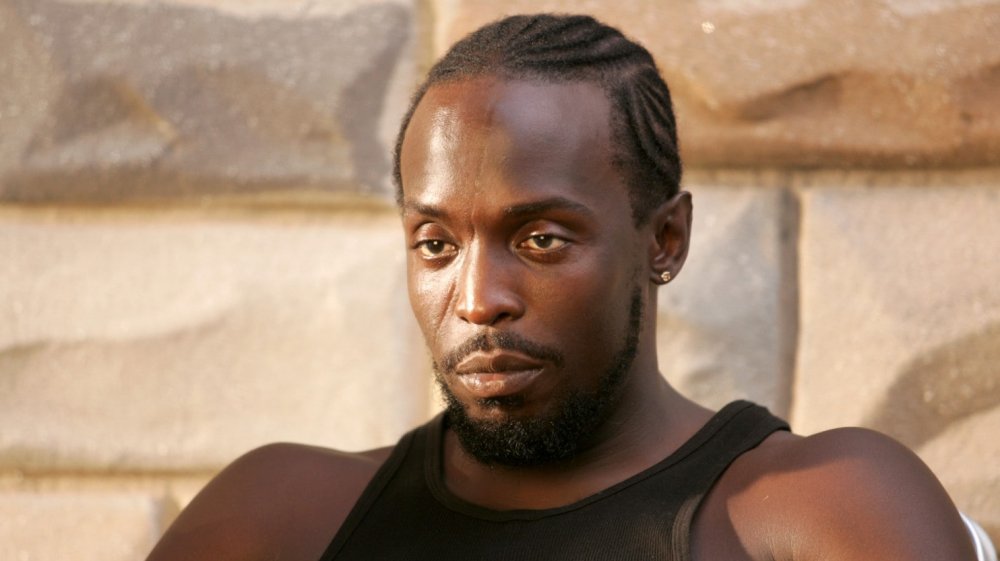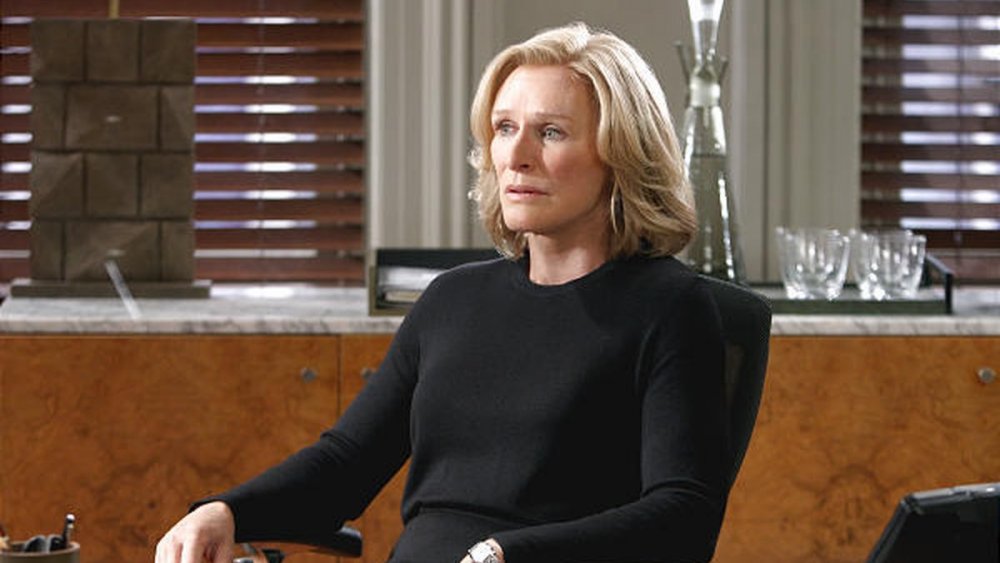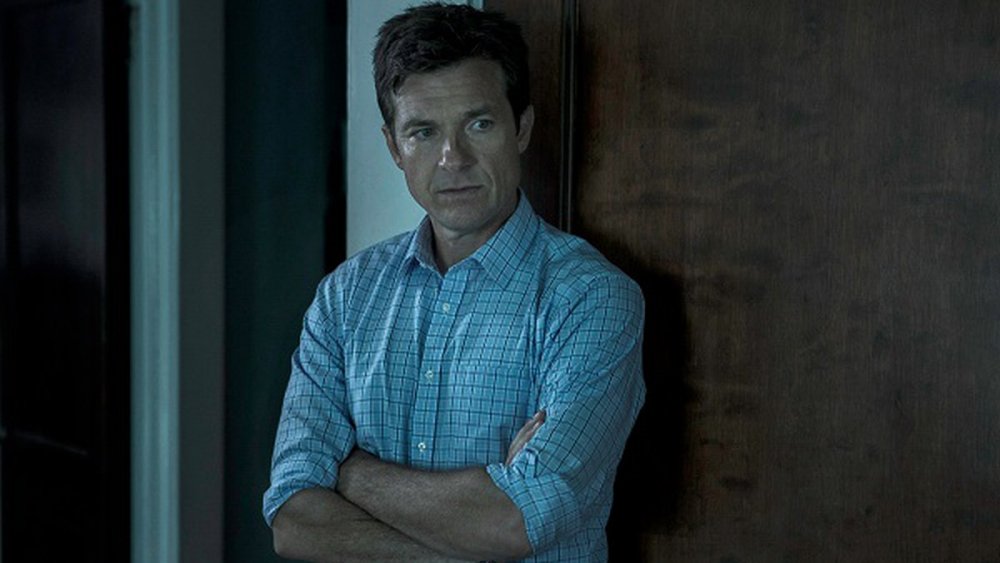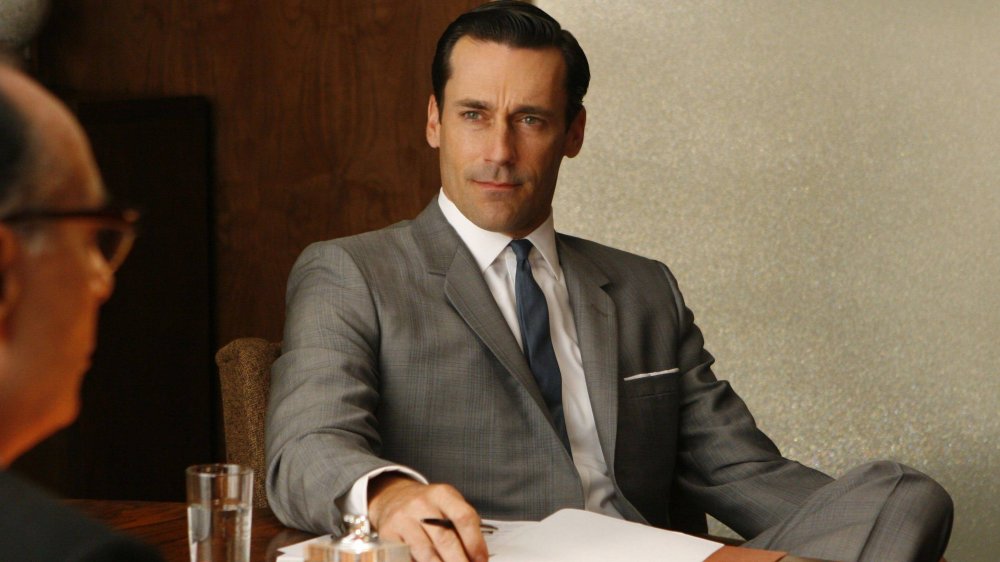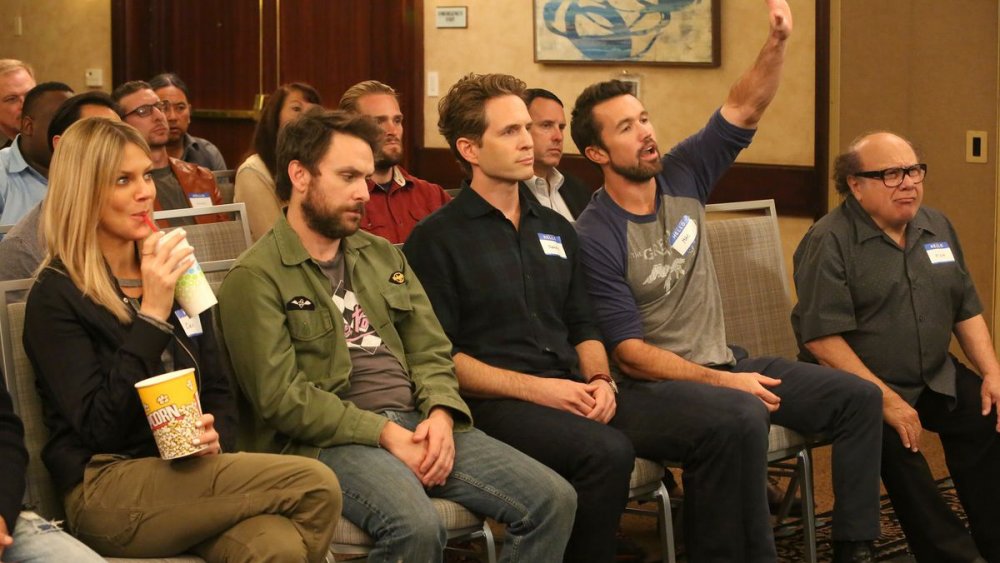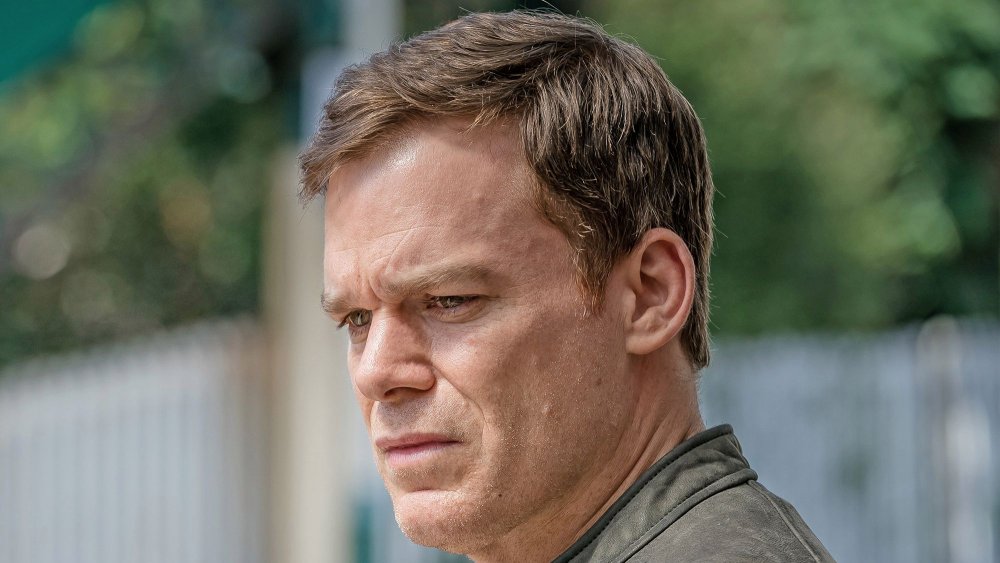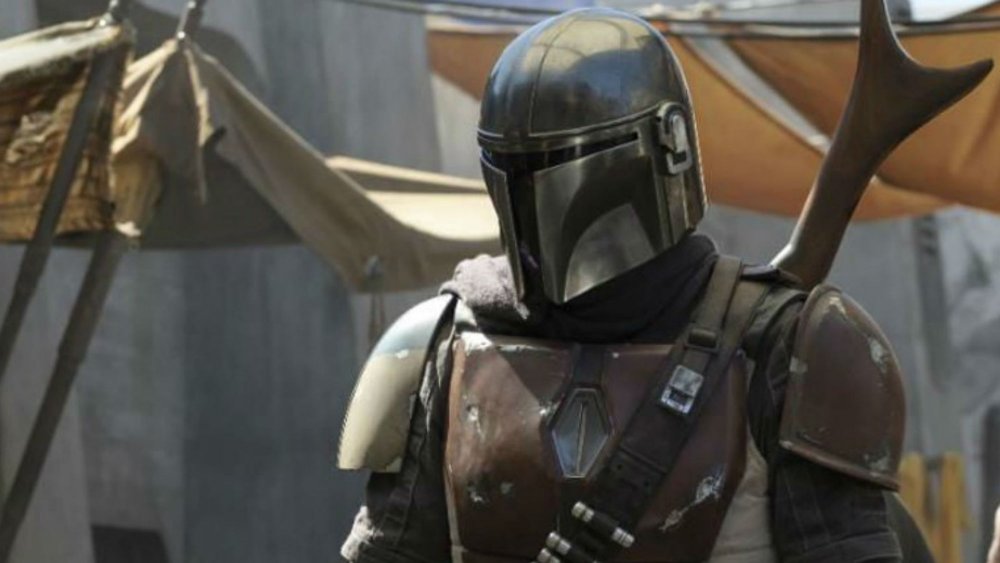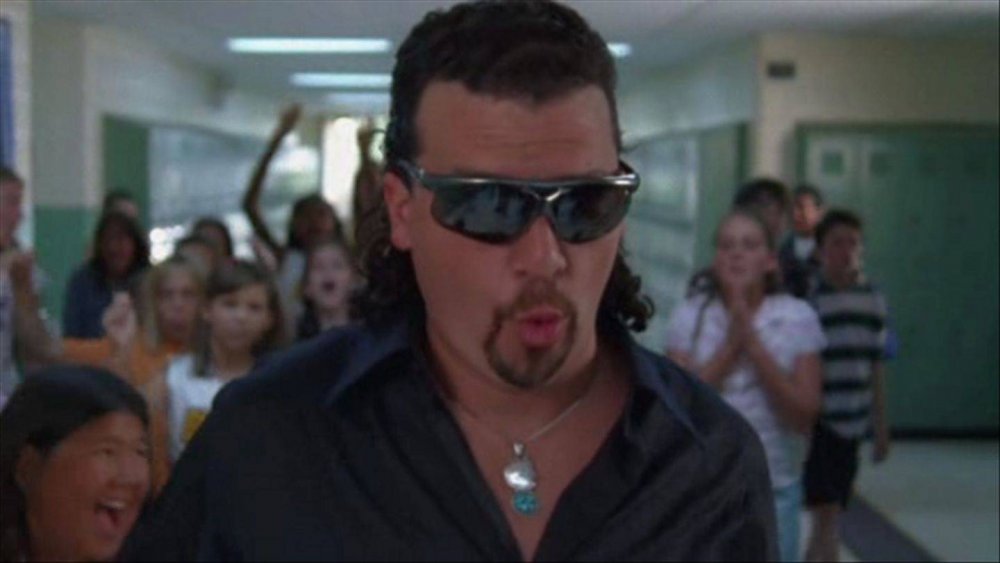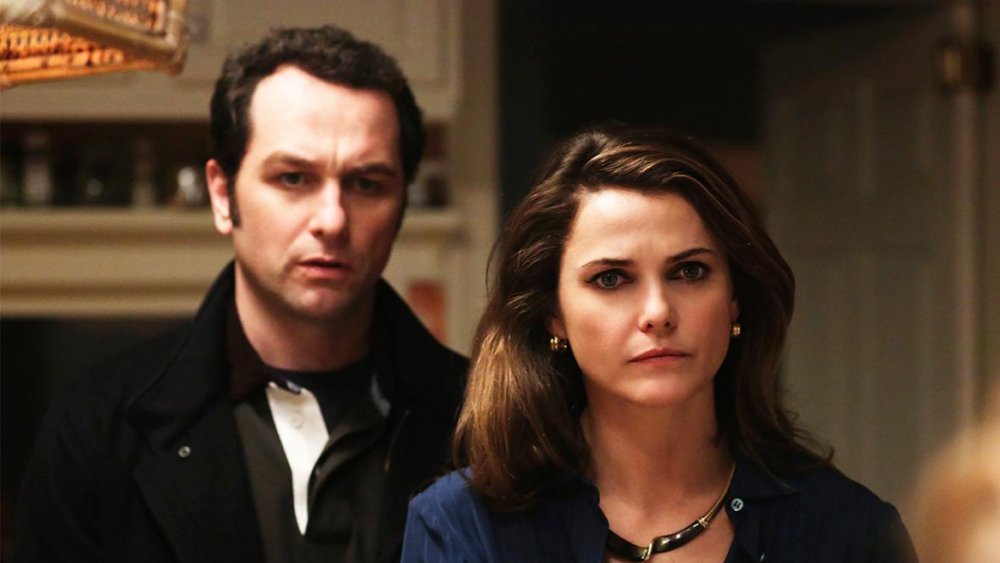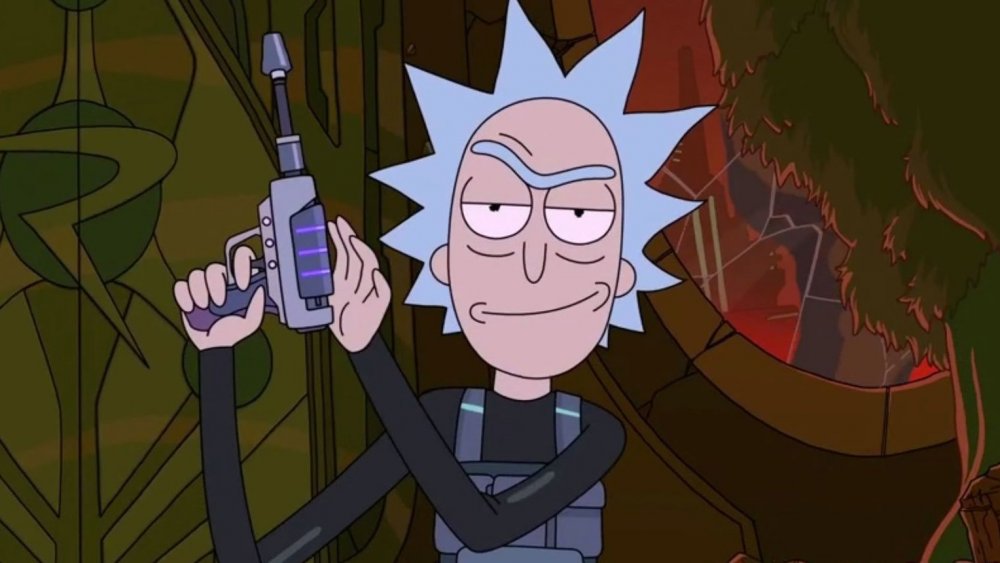The Best TV Antiheroes Of All Time
Sure, regular heroes are great. They save the day and aren't bogged down by any of that pesky moral ambiguity. While many TV series of the '80s and '90s didn't really challenge their heroes, that all ended when the new golden era of television began. Audiences became more engaged with television characters, and as a result, they became more complex. They no longer had simple motivations. They wouldn't even necessarily learn a lesson by the end of the episode. Television got a little bit darker, and the TV antihero entered the spotlight.
An antihero is a protagonist of a story who doesn't necessarily have all the attributes we typically associate with outright heroes. They may make sinister choices or decisions that serve in their own self-interest. They have qualities that allow you to still root for them, but you find yourself conflicted at times as the antihero tests the limits of how far you're willing to go along this journey. The new golden age of TV has given us plenty of great antiheroes, but these are the best you'll find on the small screen.
Walter White broke bad
Everyone's favorite meth dealer dove deeper and deeper into depravity throughout Breaking Bad. He began as a chemistry teacher who was diagnosed with cancer. Unable to leave behind any kind of safety net for his family, he turned to making and selling meth to pay the bills.
What makes him such an engaging character is how his motivations begin understandably. Yes, he has to kill people pretty much immediately, but you understand why he has to do so. It's either them or him, and he makes the decision pretty much any of us would choose. As the series goes on, his actions become less excusable.
He stands idly by as Jesse's girlfriend chokes on her own vomit. He poisons a little boy just to get Gus off his back. Seeing a good man sell meth is fun at first, but as the seasons go on, you find that you can no longer excuse this kind of behavior. It all comes to a head in the finale, where Walt explicitly states that he hasn't been doing all this for his family — he did it because he liked it.
Tony Soprano showed his true self in the first episode
There's no better example of a television antihero in American pop culture than the gangster. Mob movies have been fixtures in America multiplexes, and in the 2000s, gangsters helped usher in the new golden age of television in the form of The Sopranos. You're immediately drawn into this dark and seedy underworld from the very first episode, as Tony strangles a man to death. From that moment, you're either in or you're out.
What made The Sopranos such a pivotal show in television history was how the show viewed Tony and his actions. In a way, previous films and shows glorified the violence associated with gangsters without any sort of critical examination. It doesn't try to paint Tony as some kind of rebel fighting back against the system. He's just an evil man who happens to see a therapist to sort out his psychological issues.
Tony provided the blueprint for all future TV antiheroes to follow. He showed that the audience could simultaneously root for and be disgusted by the same protagonist.
Omar Little saw the importance of wealth redistribution
The Wire had its fair share of antiheroes. However, none of them truly struck a chord as well as Omar Little. In a way, he functioned as a Robin Hood-esque individual who robbed drug dealers and sold those drugs back to them at a huge mark-up. He found a way to make the crooked system in the show's depiction of Baltimore work in his favor.
Unlike another HBO antihero, Tony Soprano, you feel like this is the best Omar could do. Tony has the power and resources to do whatever he wants, and if he desired, he could probably find another line of work. But the system has kept Omar down for too long, and this is his most appealing method of survival given the resources at his disposal.
Omar made a name for himself on the streets. After all, if you come at the king, then you best not miss.
Patty Hewes was raised to be ruthless
If there were no flashback sequences on Damages, then we may have simply viewed Patty Hewes as a ruthless player in the legal profession who wants to get what's hers, everyone else be damned. However, as the series goes on, we learn more about her backstory from the abuse she suffered at her father's hands and the betrayal she felt when her husband cheated on her. While you may not agree with every choice she makes, you retain a certain level of empathy.
From seeing how she was raised, it's hard to imagine her turning out any other way. The show challenges us to understand that people's upbringings will follow them for the rest of their lives. If Patty had been raised better, then could she have been a nicer person? She has the intelligence and charm to be successful in any career path. Throughout the series, you're left to question what could have been.
Marty Byrde bit off more than he could chew
No one could have envisioned the man who played Michael Bluth becoming one of the most complex antiheroes in modern television, yet here we are, with Jason Bateman's portrayal of Marty Byrde in Ozark. It's a role not unlike Walter White in that he starts the series as a good man who just ends up running in with the wrong crowd. A financial planner, Marty discovers an opportunity to launder money for a Mexican cartel. Right from the beginning of the series, you know what you're getting into as he immediately endangers his family and makes all kinds of sketchy decisions.
And yet, Marty may not even be the worst character on the Ozark canvas. Pretty much every person on the show is corrupt, so it's really just a matter of picking your poison. Take Marty's wife, Wendy — she cheats on him, and he's reminded of that fact constantly as he watches footage of the affair all the time. And that's just what we see in the first episode — it only gets more depraved from there.
Don Draper made bad look good
When most people think of an antihero, they think of someone who kills or gets violent but has some kind of justification for doing so. Don Draper doesn't brandish heavy-duty artillery, but he's completely willing to manipulate and hurt the people around him to serve his own personal benefit. He gets drunk all the time when he's supposed to be working. He isn't there emotionally for his children. And he's cheated on pretty much every woman willing to commit to him.
However, the show doesn't make him a complete villain. One of Don's best arcs has to be the way he championed Peggy's career. Just like real people, he isn't completely evil or completely good. He has his moments of both, and he feels arguably the most human out of any antihero of the 21st century.
Like many antiheroes, we gain glimpses of his childhood, and it wasn't all fun and sunshine. Like so many other shows, Mad Men dares to ask, "Could this character have been better if he was raised better?"
The Gang makes evil hilarious
Dennis, Mac, Charlie, Dee, and Frank from It's Always Sunny in Philadelphia present a different kind of antihero. Many antiheroes resort to unscrupulous methods to win, but as you constantly see throughout the series, the gang almost always loses. Their wacky schemes always backfire, and when they get close to making it rich, their hubris gets in the way.
In a way, the show takes a more critical look at antiheroes than some of the most prestigious dramas. If you look at it one way, an antihero winning through nefarious means indicates that they were right to act in an evil way. It justifies the brutality. But It's Always Sunny shows how truly terrible it is to be a person who has a system for manipulating women so that they'll sleep with you. Despite Dennis' insistence his system works, we see for ourselves how it backfires. It makes it clear we shouldn't behave like Dennis and the rest of the gang — we'll only end up as miserable as they are.
Dexter Morgan showed how depraved protagonists could get
A man selling meth to pay for his cancer treatments is understandable. A man who became a gangster because it's the only life he's ever known is understandable. But in 2006, Showtime wanted to see if viewers would root for an unabashed serial killer, and the answer was an enthusiastic "Yes." Granted, Dexter Morgan is a murderer who hunts after other serial killers, but it should still shock you to your core to see him take out one person after the next.
The show dives into some explanations for why Dexter behaves the way he does. You end up feeling kind of sympathetic toward him, which makes the show all the more haunting. When you're able to empathize with a literal killer, you should find yourself very worried. The show declined in popularity and quality in later seasons, culminating in a finale that was widely panned by many who watched the show. But for a brief time, a serial killer was the most popular man on television.
The Mandalorian shows us the way
You probably wouldn't expect one of the most interesting antiheroes of the 21st century show up on Disney+, but here we are. When The Mandalorian was released, it was met with widespread acclaim. People had as much to say about the quality of the show as much as the fact it featured a baby member of Yoda's species — and if this bounty hunter didn't have a hidden heart of gold, then that baby would've been killed within the first episode.
The Mandalorian has no problem taking people in by any means necessary, as evidenced by the show's opening sequence. We see how ruthless he can be, but as the show goes on, we see him grow as a character. He's still not above taking a life as he takes out one stormtrooper after the other. He may not be the most ruthless antihero in television history, but he's arguably one of the most fun to watch.
Kenny Powers gives us profane fun
Eastbound & Down should be required viewing for anyone who wants to see one of the best comedic TV series of the 21st century — and the whole show is bolstered by Danny McBride's portrayal of Kenny Powers.
The show was a huge hit, in large part thanks to Powers' provocative nature. He was a humongous narcissist who had a knack for saying the wrong thing at the wrong time. You find yourself laughing at the ridiculous and profane things he says, but once you're done laughing, you're left to ask yourself, "Wait, why was that funny?"
Danny McBride owned this role, and it made sense when he went on to play basically the same part in Pineapple Express and This Is the End. Powers is a jerk, but over the series, you see him struggling to become a better person. He wants to be good, and while you may not agree with everything he does, you want him to excel in his efforts.
The Jennings offer wavering loyalty to the enemy
The Americans is one of the most slept-on TV shows in recent memory, which is a shame because the show is a fascinating adventure from start to finish. The series follows the Jennings, a husband and wife who are Russian sleeper agents living in the United States in the middle of the Cold War. While most pieces of spy fiction centering on that era focus on Americans trying to infiltrate enemy operations, this show dared to put us in the shoes of people trying to upend the American way of life — and it was amazing.
Normally, this kind of story would end with the Russian agents falling in love with America and going against the demands of their foreign superiors, but that isn't the case with this show. While they have some doubts over the course of the series about what they're doing, they remain committed to the mission. Surprisingly, they remain sympathetic to American audiences more than willing to root for them. That right there makes them some of the most compelling antiheroes to ever grace the small screen.
Rick Sanchez is in great pain
Rick Sanchez from Rick and Morty is the abusive, alcoholic patriarch of the Smith family. Despite his shortcomings, he's developed one of the most loyal and passionate fanbases of any TV character in history. His love of McDonald's Szechuan sauce from the '90s inevitably meant the fast-food chain would bring it back. He's funny, and even when you think he's cornered, he finds some way to get himself out of any sticky situation. Everyone who watches the show wants to be like Rick.
And that's kind of sad when you think about it. He goes around destroying entire species of alien races and murdering anyone in his way when he's a pickle, and deep down, none of it makes him happy. He doesn't have a good relationship with anyone. Even his young protege Morty, who optimistically loves Rick in the first season, slowly grows to resent him as the show goes on. By the end of season four, Morty is pretty much done with Rick and only goes on adventures with him when there's something in it for him.
Deep down, Rick shows what it means to be a bad person. You end up alienating everyone you love to the point where they'll just leave you in the garage to sulk in your own misery.
